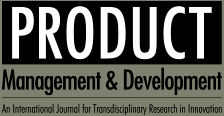Organizational learning in the context of product development management
Marcelo Ruy, Dário Henrique Alliprandini
Abstract
This article discusses the results of research into organizational learning in the new product development (NPD) process, involving three manufacturers. It aims to provide a referential framework to help understand organizational learning in the specific context of NPD, applying this framework to identify practices and methods that promote and facilitate this learning on a regular basis. Based on an exploratory, multiple-case study with a single unit of analysis and qualitative data collected from semi-structured, in-depth interviews, the following methods and practices were found to exert an impact on learning. a) During and post-project learning must focus on the detection and correction of “critical NPD events” so as to improve process performance; b) Both types of learning depend on the nature of the project (derivative, platform, etc.), which suggests the need for a learning strategy specific to each case; c) The stage-gates system can also be used as a formal method to facilitate learning during a specific project; d) Retention and transference (either within or across projects) of explicit knowledge is better addressed by archival-based mechanisms (documents, reports and FMEAs). On the other hand, experience-based methods (face-to-face contact, meetings, project leader) are ideal when knowledge is tacit; e) Leadership style and organizational culture that reward employee commitment and motivation facilitate learning; and f) QFD and FMEA tools help by anticipating and correcting critical NPD events during a project.

